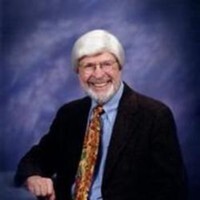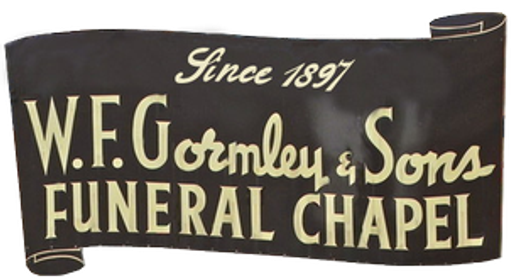

Henry Teichert
September 6, 1917 — October 15, 2013
Henry Teichert
Henry Teichert, a modest man who answered a call to serve his family and community as the leader of a historic California construction company, died Tuesday at his east Sacramento home. He was 96. Teichert was the patriarch of a prominent Sacramento family and a pillar of the business establishment. As president and then chairman of Teichert Inc. for 35 years, he introduced modern management techniques as the company's operations expanded throughout the state. He modeled strong values of business ethics, civic involvement and caring for others. "Sacramento and our entire state have lost a true icon of business and community with the passing of Henry Teichert," state Senate President Pro Tem Darrell Steinberg said. "The Teichert family is an integral part of Sacramento's storied history, and the company he guided for more than three decades literally helped to build our state." Teichert was the grandson of Adolph Teichert Sr., a German immigrant and stonemason who started a paving company in Sacramento in 1887. The founder was joined by his son, Adolph Jr., in 1912 to form A. Teichert & Son, which literally laid the foundation for much of the capital city - from street curbs to major freeways - with concrete pavement that still bears the family name. The company holds the oldest active contractor's license in the state: No. 8. Adolph Teichert Jr.'s youngest son, Henry got his first job in the family business at 10, standing at a conveyor belt and picking out loose tool parts before they fell into a rock crusher. He spent a summer hand-forming and installing adobe bricks for the restoration of Sutter's Fort in 1937. His first career choice, however, was law. He graduated from Boalt Hall law school at UC Berkeley in 1949 and joined top attorneys Bruce Allen, Milton Schwartz and Martin McDonough to found one of the first group law practices in Sacramento. The firm became McDonough Holland & Allen, which was a legal powerhouse in the capital for many years before dissolving in 2010. But when Henry Teichert's father died in 1953 with no heirs groomed to take over the family business, he stepped up. He left the law to run the company as president from 1958 to 1972 and chairman of the board from 1972 to 1993. "He was the third generation to run the company, and a lot of family businesses don't last that long," said Tom Hammerv, a longtime friend and former Teichert board member. "It was a matter of survival." Teichert transformed his family's business from an entrepreneurial operation to a corporate organization. He reconfigured and refined the company's lines of business, splitting its manufacturing of building materials from its construction side. Lacking experience in construction, he developed professional managers from within the company. He instigated seminars, management retreats and training programs to help keep the company competitive in the construction industry. "Part of it was lack of confidence," he told The Bee in 1987. "I didn't know what the hell I was doing, and I needed counsel from anywhere I could get it." Today, Teichert Inc. is a multimillion-dollar general contractor that mines rock and makes aggregate, ready-mix concrete and other building materials. It builds runways, sidewalks, roads, freeways and foundation structures for new housing developments, office buildings and airports. The company's trademark bright-green trucks are ubiquitous at construction projects all over California. The company is led by the family's fourth and fifth generations. Henry Teichert's nephew, Judv Riggs, is president and chief executive officer. Teichert's granddaughter, Mary Rotelli, is chief operating officer. "He made good choices," Hammer said. "He brought in good people and delegated a lot. That gave him time to focus on other things." Teichert played a leading role in many business, civic and social organizations. He was a past president and active member of the Sacramento Rotary Club for more than 50 years. He was a longtime member of the Sutter Club, served on the board of El Dorado Savings Bank and participated in an annual downtown men's prayer breakfast for many years. "I served with him on the El Dorado Savings Bank board," Hammer said. "He was very ethical. Hardly a meeting went by that Henry didn't talk about what was the right thing to do." Teichert was an early supporter of fair housing laws during the civil rights movement. In 1968, he joined a small group of local business leaders who sponsored the National Urban League in establishing a chapter in Sacramento to improve job and educational opportunities for African Americans in Northern California. "Henry had a vision more than 40 years ago that recognized the importance of providing assistance and help in the community," said James Shelby, president and chief executive officer of the Sacramento Urban League. "He saw the challenges and answered the need." Born Sept. 6, 1917, in Sacramento, Henry Teichert was the third of four children raised by Augusta Quassv and Adolph Teichert Jr. He grew up in east Sacramento and graduated from Sacramento High School. After earning an English degree from UC Berkeley in 1939, he spent five years as an Army Air Force intelligence officer and served in China and India during World War II. all names are CQ He had five children with his wife of 56 years, the former Wendy Downey, who died in 2003. He is survived by sons Fred, Jonathan and Isaiah; daughters, Wendy-Marie and Rose Grimm; 18 grandchildren; and 20 great-grandchildren. Teichert enjoyed eclectic hobbies, including duck hunting, beekeeping, making olive oil and woodcarving. He had a playful sense of humor that included dressing up at Halloween and wearing special shirts and hats for the annual Fourth of July parade in his east Sacramento neighborhood. An accomplished bagpipe player, he enjoyed dressing in full Scottish regalia and performing at friends' weddings. After stepping down from Teichert Inc., he remodeled old homes with a group of retirees. "He had lifelong friendships with many people in Sacramento," said his son Fredv. Despite his wealth and influence in the community, Teichert was disarmingly soft-spoken and low-key in person. An unassuming man of simple tastes, he shunned the trappings of a high-powered business executive. "The head of Teichert always drove a Cadillac, and the second-in-charge drove a Buick, and the third drove a big Chevrolet," longtime friend and Sacramento historian Meadv Kibbeyv said. "Henry didn't want to drive his father's Cadillac. He drove a Volkswagen, which blew up the whole corporate ladder. He told me, Maybe I should just park a Cadillac by the office.'" In a 1987 profile story, Teichert told The Bee that when he wanted to impress someone - usually a grandchild or great-grandchild - he drove to Sutter's Fort and pointed out the adobe bricks he made by hand. "That's going to be here when we're all dead and gone,' I tell them - long after all the highways have been repaved.'" A visitation is set for noon to 5 p.m. Oct. 23 at W.F. Gormley & Sons, 2015 Capitol Ave., Sacramento. A funeral is set for 2:00p.m. Oct. 24 at Trinity Episcopal Cathedral, 2620 Capitol Ave., Sacramento. In lieu of flowers, donations may be made to the Rotary Polio Plus program or Boys & Girls Clubs of Greater Sacramento. ~Bob Davila, Sacramento Bee Henry's family asks that gifts in his honor go to the Boys & Girls Clubs of Greater Sacramento (5212 Lemon Hill Ave, Sacramento, CA 95824; 916-392-1350) or to Rotary Polio Plus (c/o Rotary of Sacramento, 355 Commerce Cir Sacramento, CA 95815; 916-929-2992).
To order memorial trees or send flowers to the family in memory of Henry Teichert, please visit our flower store.
Guestbook
This site is protected by reCAPTCHA and the
Google Privacy Policy and Terms of Service apply.
Service map data © OpenStreetMap contributors





